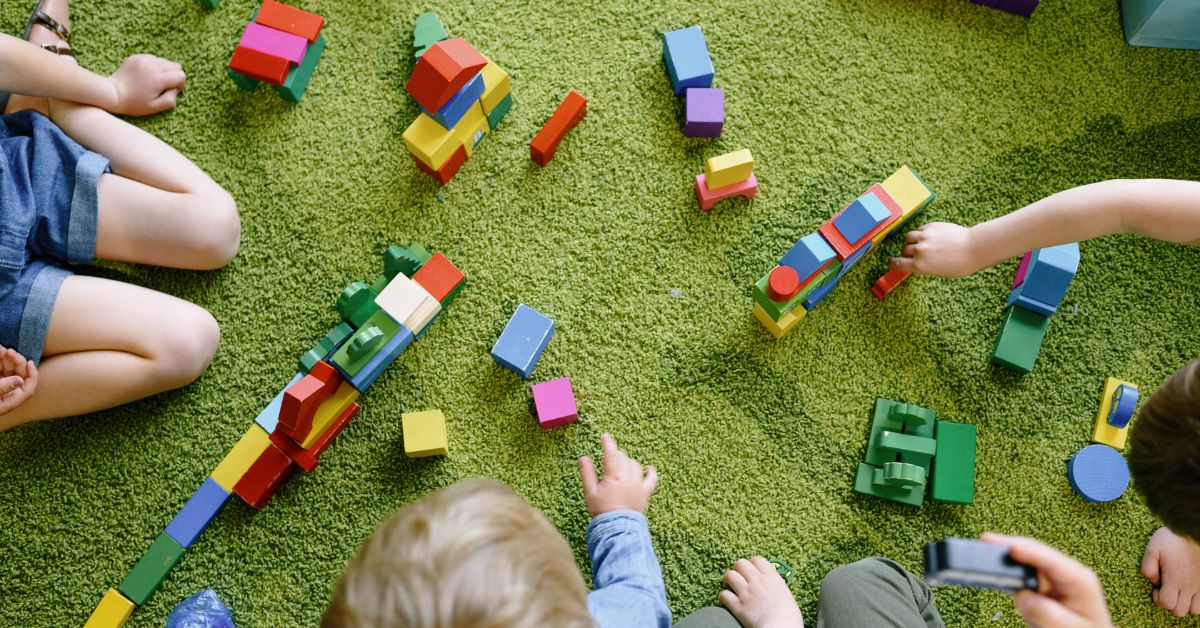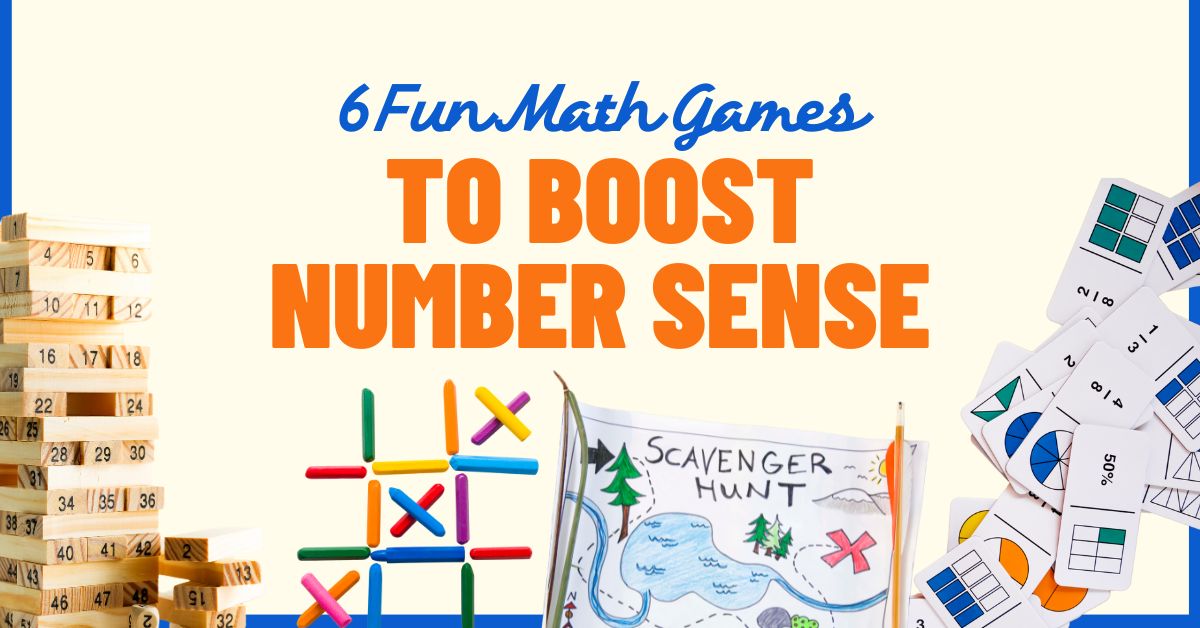Helping your child develop strong number sense is one of the best ways to set them up for success in math. Number sense is the ability to understand numbers, their relationships, and how they work together. It’s more than just rote memorization of facts; it’s about real comprehension.
Luckily, incorporating fun math games into your homeschooling routine can make building these skills both engaging and educational. Here are six exciting games that can boost number sense and transform math lessons into fun, interactive experiences.
1. Build-a-Tower with Dice
Dice games are a quick and easy way to make math more hands-on. For this game, all you need are dice, some small building blocks or LEGOs, and a flat surface.
How to Play:
- Each player rolls two dice.
- Add the two numbers together to get the sum. This reinforces addition skills and the relationship between numbers.
- The player builds a tower using the same number of blocks as the sum. For example, if they roll a 5 and a 3, they build an 8-block tower.
- Take turns adding to your tower. The first person to reach an agreed-upon height wins.
Why It Helps:
This game helps kids visualize quantities and practice addition in a tactile way. It’s also great for showing how numbers combine to make bigger totals. To simplify, use just one die at first. Or, to challenge older kids, have them multiply the dice!
2. Number Line Treasure Hunt
Create an engaging math scavenger hunt that works on number sense and spatial reasoning. You’ll need some paper strips, markers, and small objects like coins or toys to use as “treasures.”
How to Play:
- Create a large number line on the floor using paper strips. Write numbers (positive, negative, or fractions, depending on your child’s level) on each strip.
- Hide treasures near certain numbers. For example, “the treasure is at the number that’s 5 more than 8” or “find the number that is half of 20.”
- Give your child the clues as they search and solve.
Why It Works:
This game encourages kids to think critically about how numbers relate to one another, reinforcing skills like skip counting, addition, subtraction, and even fractions.
3. Estimation Jars Challenge
Estimation is a key part of number sense. Preparing this activity takes just a few minutes and can keep kids entertained for hours.
How to Play:
- Fill a clear jar with small objects, like marbles, candies, or buttons.
- Ask your child to estimate how many are inside.
- For older kids, add more complexity by creating categories like “estimate how many red candies are in the jar” or calculating ratios.
- After writing down predictions, count the items together for the exact answer.
Why It’s Valuable:
This game hones your child’s ability to visually gauge numbers and refine their guesses. Plus, it introduces concepts like greater-than and less-than in a natural way.
- Card Wars
This card game is an excellent way to work on mental math and comparison skills. You’ll need one deck of cards, with face cards removed.
How to Play:
- Divide the deck equally between players.
- Each player flips over two cards and adds (or multiplies, for older kids) the numbers together.
- The player with the higher total keeps all the flipped cards.
- Continue until the deck is gone, then count cards to determine the winner.
Why It’s Effective:
“Card Wars” reinforces quick mental math with addition, multiplication, and comparison. It’s also endlessly customizable—for example, players could subtract instead or use three cards for more complexity.
5. Guess My Number
This classic game is simple and helps kids think logically about number relationships. Best of all, you don’t need any materials!
How to Play:
- One person (the “host”) picks a number within a certain range (for instance, 1-100).
- Players take turns guessing the number.
- After each guess, the host gives a clue such as “higher” or “lower” to guide them closer to the correct number.
Why It Matters:
“Guess My Number” teaches kids to narrow down possibilities and think strategically. For older children, you can limit the number of guesses, teaching efficiency as well.

A Deeper Look at Number Sense and Math Games
Playing math games isn’t just about having fun; it’s a vital part of learning. Children often understand math better when they can explore it playfully. Games like these give them the chance to experience numbers in context, rather than seeing them as abstract symbols on a worksheet.
For example, number sense encompasses skills like estimating, recognizing patterns, and mentally manipulating numbers. Whether they’re estimating how many bricks will fill a toy bin or strategizing who will win in “Card Wars,” kids are naturally practicing these skills. Such activities help them feel more comfortable with numbers, making what might otherwise seem intimidating feel approachable and engaging.
Parents might notice that children who play math-focused games often have fewer struggles transitioning to formal mathematical concepts. Games provide opportunities to see math as useful in the real world and encourage persistence—even when problems require multiple steps to solve. With regular practice, kids not only build number sense but also gain the confidence to tackle more advanced concepts down the line.
Customizing Math Games for Different Ages
Not every fun math game is a perfect fit for every child. Younger kids may feel overwhelmed by games with multiple rules or big numbers, while older kids might get bored with overly simple challenges. With some small adjustments, though, these games can work for any age.
For preschoolers, focus on basic skills like counting and identifying numbers. Games like “Building Towers” can be simplified to use just one die instead of two. Children at this stage benefit from seeing and touching objects as they learn to connect numbers to real-life quantities.
For older kids, try introducing higher-level concepts into games they already love. For example, instead of just multiplying numbers in “Card Wars,” challenge them to solve multi-step problems to win a round. You could even incorporate decimals or fractions to make games more advanced.
Adapting games ensures that math feels doable and enjoyable for every child, no matter their starting point.
6. Math Relay Race
Turn math practice into a high-energy activity with a relay race that tests quick number sense and teamwork. You’ll just need a whiteboard, chalk, or even some paper taped to the wall.
How to Play:
- Write a series of math problems (addition, subtraction, multiplication, or division) on separate sheets of paper. You can mix simpler and harder questions.
- Divide your family into teams. Each team forms a line.
- One player from each team races to the board, solves a problem, and runs back to tag the next teammate.
- The game continues until all problems are solved. The team with the fewest total mistakes wins!
Why It’s a Winner:
A math relay race introduces speed, critical thinking, and collaboration, showing kids that math doesn’t always have to happen at a desk. Additionally, it adds an exciting physical element that some kids thrive on.
An Important Math Skill
Building number sense is one of the most important math skills you can nurture in your homeschooling routine. These fun math games don’t just teach the basics; they encourage deeper understanding while engaging your child in exciting and interactive ways. Whether you’re organizing a number line treasure hunt, competing in “Card Wars,” or solving clues in “Guess My Number,” you’re helping your child connect with math in ways that go beyond rote memorization.
Try rotating these games into your schedule and watch as your child grows more confident, capable, and curious about numbers. Homeschooling math just got a whole lot more fun!





